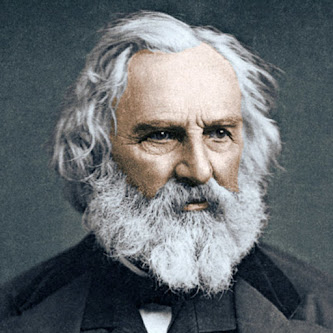Henry Wadsworth Longfellow:
(187-1882)
American poet Henry Wadsworth Longfellow
was born into a well-to-do family in Portland, Maine on 27th Feb 1807. He received his early education
at Harvard University. He traveled (in 1826-1829) widely in Europe when he was
young. Then he became a professor of modern languages at Harvard until 1854. HE
was a man of broad culture and was one of the groups of New England writers for
whom the term Brahmin was coined.
Longfellow published a book of travel reminiscences
and in 1839 he published a semi-autobiographical novel, HYPERION which
reflected his mood after the death of his first wife. In the same year, he
brought out his first collection of poems; Voices in the Night. Some of his
most memorable poems, including “The Wreck of the Hesperus” came out in
his Ballads and other poems in 1842. Among later ballads was the famous ‘Paul
Revere’s Ride’ in 1863.
His reputation was already high when he
published the first of his long narrative poems, “Evangeline” in 1847,
about the plight of exiles from Nova Scotia in Louisiana. “The Song of
Hiawatha” (1835) his Red Indian tale, was written in a disastrously
monotonous rhythm. The work on which e himself set most stores was the “Trilogy
Christus” (1872) consisting of “The Divine Tragedy”, “The Golden
Legend” and “New England Tragedies”. His last works, “Ultima
Thule” of 1880 and ‘In the Honor of 1882, showed no failing of his powers.
Despite his vast contemporary reputation, his powers were never very great. He had skills, good well, and good taste. He had wide learning, but little intensity.
In March 1882, Longfellow suffered from stomach pain. He lived through the pain for several days with the help of opium before he died, surrounded by family on Friday, 24th March 1882. He had been suffering from peritonitis. At the time of his death, his estate was worth an estimated $356,320. He is buried with his both wives at Mount Auburn Cemetery in Cambridge, Massachusetts.


Comments
Post a Comment